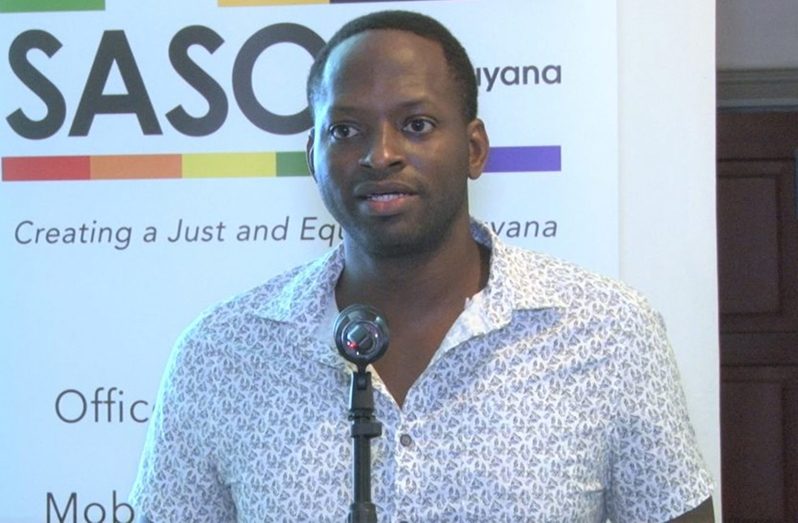…regional study shows
THE well-being and livelihoods of Lesbian, Gay, Bisexual, Transgender and Queer (LGBTQ+) Guyanese have been adversely affected due to the ramifications of the COVID-19 pandemic, according to a Caribbean study conducted earlier this year.
Caribbean LGBTQ+ survey was done by members of the University of the West Indies (UWI), working alongside LGBTQ+ bodies in Guyana, Grenada, St. Lucia and Barbados, through support from the United Nations Development Programme (UNDP). For Guyana, there were 265 respondents.
The study was published in June and showed that 45 per cent of the respondents reported that they lost their job or had their businesses closed, while another significant portion of respondents (26.5 per cent) had either reduced working hours or were temporarily laid off. This illustrated that the livelihoods of approximately 72 per cent of the respondents were adversely affected by the pandemic.
In a recent interview, Managing Director of the Society Against Sexual Orientation Discrimination (SASOD), Joel Simpson, explained that the livelihoods of many LGBTQ+ persons were adversely affected because many of them work in the informal sector of the economy.
These jobs include sex work, domestic work, night life and entertainment. And Simpson highlighted that the stay-at-home orders and the curfew measures impacted those.
“People were saying very clearly they didn’t have enough money to buy food or to get potable water, and because of how their livelihoods were affected, they were having difficulties paying rent,” the SASOD’s Managing Director lamented.
While there were individuals who were able to engage their regular clients through social networking technologies and who were able to provide home-based services, street-based sex work, in particular, was impacted.
Cognisant of how easily the pandemic disrupted sex work, Simpson shared that SASOD is developing job-readiness and entrepreneurship training programmes to encourage its constituents to get jobs within the formal economy. This, he explained, could supplement whatever earnings are garnered from sex work.
In an attempt to provide some redress too, SASOD developed its own support mechanisms for the vulnerable population. This included the distribution of food hampers and cleaning supplies. The National AIDS Programme Secretariat (NAPS) was also responsive, distributing multi-month dispensation of drugs to reduce the burden of frequent travel costs.
WELL- BEING
According to the study, only 14.6 per cent of the respondents were able to access counselling services; 7.3 per cent were able to access help for reporting harassment and discrimination; and only three per cent were able to access legal and paralegal services. However, it is important to note that just over half of the respondents indicated that they needed these services and more.
What was worrying, however, was that many persons’ mental health had been impacted too. When compared to the three other Caribbean countries studied, it was discerned that Guyanese LGTBQ+ persons were struggling to deal with the fallout from the loss of their income and the overall impact of the pandemic.
Family violence also contributed significantly to the adverse impact on the well-being of these individuals. It is important to note that many persons are affected by homophobia within their own family spaces. Eight-six respondents stated that they experienced some form of violence and abuse– whether physical, sexual, emotional and/ or verbal.
Simpson explained that the stay-at-home and curfew measures also resulted in increased interactions with family members, who may have been homophobic, resulting in violence.
Cognisant of these challenges, Simpson related that SASOD made its counselling services free of cost and easily accessible through many virtual platforms. Legal services were also pivoted and reprogrammed to address these critical needs emerging in the pandemic.




.png)









